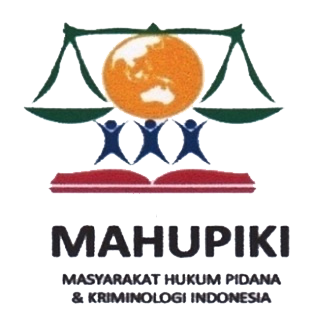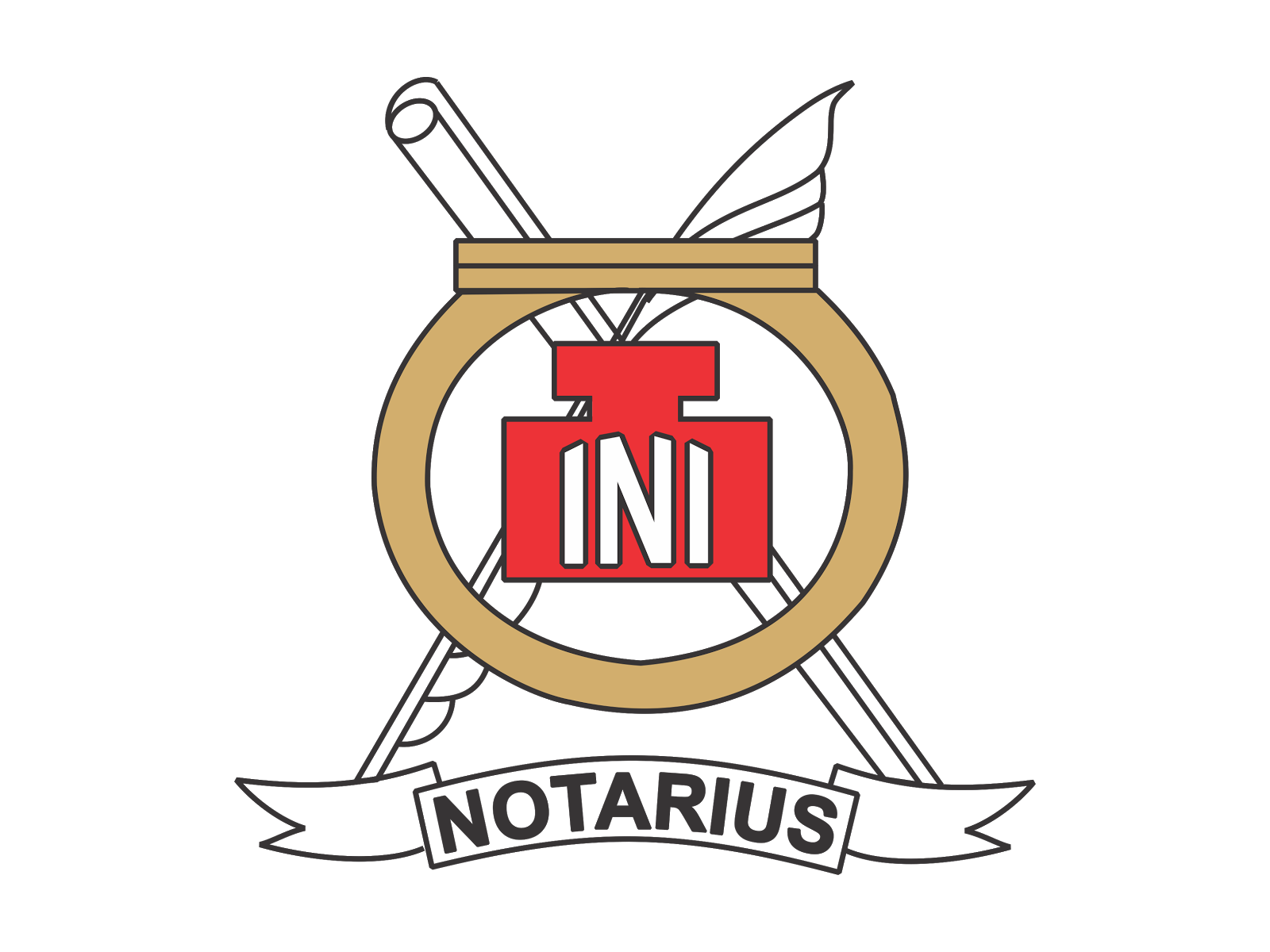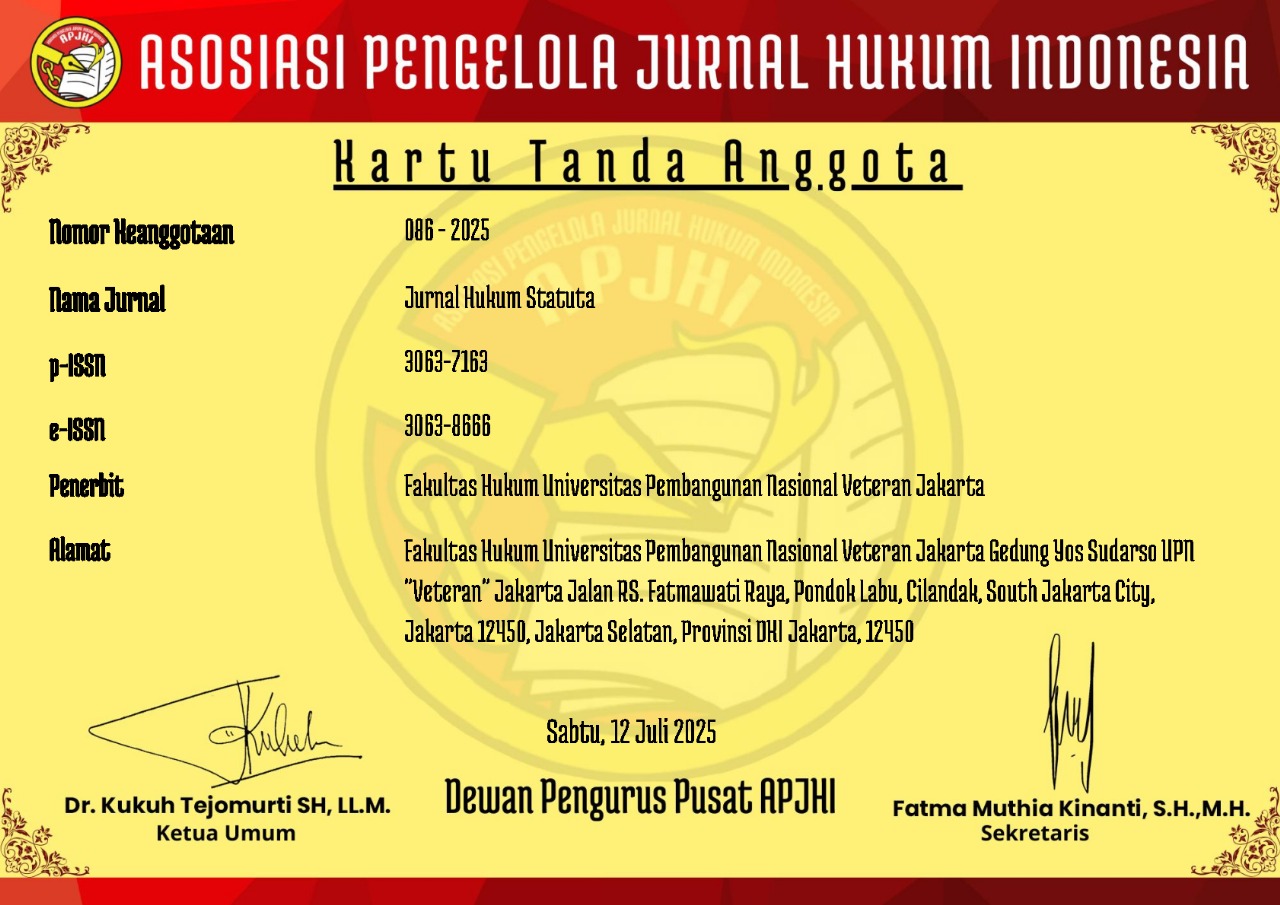TANGGUNG JAWAB PENYEDIA KONTEN TIKTOK ATAS PENGUNGGAHAN FILM BAJAKAN MELALUI APLIKASI TIKTOK (STUDI KASUS : PELANGGARAN PEMILIK HAK CIPTA SINEMATOGRAFI)
DOI:
https://doi.org/10.35586/jhs.v2i3.9100Kata Kunci:
Bajak Film, Hak Cipta, Penegakan HukumAbstrak
Tujuan dari riset ini adalah memeriksa kewajiban fasilitator konten Tiktok terkait penguploadan film tiruan dari platform Tiktok dan usaha penegakkan hukum terhadap kesalahan hak cipta sinematografi terkait penguploadan film tiruan dari platform Tiktok oleh pemilik konten. Artikel ini menggunakan metode penelitian hukum yuridis normatif dengan menggunakan pendekatan perundang-undangan dan konseptual. Hasil riset ini membuktikan bahwa pemilik konten TikTok harus bertanggung jawab untuk mencegah film tiruan dengan bertindak langsung memblokir akun pengguna. Namun, penegakan hukum atas pelanggaran hak cipta sinematografi belum efektif karena masih banyak kreator konten yang mengunggah film tiruan ke aplikasi TikTok.
Referensi
Abu, Yasid. “Aspek-Aspek Penelitian Hukum: Hukum Islam – Hukum Barat,” 15. Yogyakarta: Pustaka Pelajar, 2010.
Agia Dwi Visi, Utami. “Aplikasi Tiktok Menjadi Media Hiburan Bagi Masyarakat Dan Memunculkan Dampak Ditengah Pandemi Covid-19.” MEDIALOG: Jurnal Ilmu Komunikasi 4, 2021, 40–47.
Ari Turyandoko, Yohanes. “Penegakkan Hak Cipta Dari Tindakan Pembajakan Di Indonesia.” Lex Crimen II/ No. 5, no. 4 (2013): 113–21. https://ejournal.unsrat.ac.id/index.php/lexcrimen/article/view/3110/2654.
Arif Budiansyah. “TikTok Money Calculator, Cara Hitung Pendapatan Dari TikTok.” CNBC Indonesia, 2020. https://www.cnbcindonesia.com/tech/20200302164518-37-141832/tiktok-money-calculator-cara-hitung-pendapatan-dari-tiktok.
Hasibuan. “Hak Cipta Di Indonesia Tinjauan Khusus Hak Cipta Lagu, Neighbouring Rights Dan Collecting Society,” 251–52. Bandung: Alumni, 2008.
Indonesia, Presiden Republik. Undang-Undang Republik Indonesia Nomor 28 tahun 2014 tentang Hak Cipta, Kementerian Sekretariat Negara RI § (2014).
Isnaini, Yusran. “Hak Cipta Dan Tantangannya Di Era Cyber Space,” 28. Bogor: Ghalia, 2009.
“Ketentuan Layanan,” 2022. https://www.tiktok.com/legal/terms-of-service-row?lang=id.
Mahmudji, Soerjono Soekanto dan Sri. “Penelitian Hukum Normatif, Suatu Tinjauan Singkat,” 13. Jakarta: Raja Grafindo Persada, 2003.
Marzuki, Peter Mahmud. “Penelitian Hukum,” 3. Jakarta: Kencana Prenada Media Group, 2010.
Mulyadi, M. “Riset Desain Dalam Metodologi Penelitian.” Jurnal Studi Komunikasi Dan Media 16 (2012).
Ningsih, Ayup Suran, and Balqis Hediyati Maharani. “Penegakan Hukum Hak Cipta Terhadap Pembajakan Film Secara Daring.” Jurnal Meta Yuridis 2, no. pembajakan film (2019): 32.
Santoso, Budi. “HKI Hak Kekayaan Intelektual,” 98–100. Semarang: Pustaka Magister, 2011.
Sheila Mamentu, Mirza, Emma V T Senewe, and Jemmy Sondakh. “PEMBAJAKAN FILM DI SITUS INTERNET DALAM HUBUNGANNYA DENGAN HAK CIPTA 1 Oleh.” Lex Administratum IX, no. 1 (2021): 5–13.
Siambaton, Baru Tulus Obtain. “Modul Hukum Cyber & Transaksi Elektronik,” 196. Medan: Fakultas Hukum Universitas HKBP NOMMENCEN, 2018.
Supramono, Gatot. “Hak Cipta Dan Aspek – Aspek Hukumnya,” 1. Jakarta: PT Rineka Cipta, 2012.
Unduhan
Diterbitkan
Cara Mengutip
Terbitan
Bagian
Lisensi

Artikel ini berlisensiCreative Commons Attribution-ShareAlike 4.0 International License.

Ciptaan disebarluaskan di bawah Lisensi Creative Commons Atribusi-BerbagiSerupa 4.0 Internasional.











